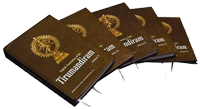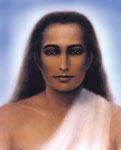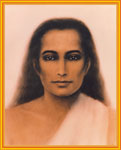Special introductory sale price
Price includes shipping. New Edition with a more accurate literal translation, with verse by verse commentary, in a 5 volume hardbound set. 3,770 pages. 2010. Each verse includes the original Tamil language script, its transliteration in Roman characters, its English translation and a commentary elucidating the meaning of each verse, by six eminent Tamil scholars, under the direction of Dr. T.N. Ganapathy. The last volume includes enlightened discourses from two philosophical schools of Saiva Siddhanta, a glossary, a select bibliography and index. ISBN 978-1-895383-61-4.
The Tirumandiram (Thirumandiram or Tirumantiram), by Siddha Tirumular is a sacred, monumental work of philosophical and spiritual wisdom rendered in verse form. Encyclopedic in its vast scope, and written nearly 2,000 years ago., it is one of India’s greatest texts, a spiritual treasure-trove, a Sastra containing astonishing insight. It is a seminal work and is the first treatise in Tamil that deals with different aspects of Yoga, Tantra and Saiva Siddhantha.
It took five years and a team of scholars to translate each of its more than 3,000 verses and to write extensive commentaries about them, in nine chapters, known as tandirams. This classic text contains five volumes. Each volume contains two tandirams and each verse includes the original Tamil language script, its transliteration in Roman characters, its English translation and a commentary elucidating the meaning of each verse. The last volume also contains presentations from two philosophical schools of Saiva Siddhanta, a glossary, a select bibliography and index.. It includes 3,770 pages in total.
The following eminent scholars have translated the Nine Tandirams:

- Tandirams 1, 2 and 3 - Translated by Sri T.V. Venkataraman
- Tandiram 4 - Translated by Dr T.N. Ramachandran
- Tandiram 5 - Translated by Dr K.R. Arumugam
- Tandiram 7 - Translated by Dr P.S. Somasundaram
- Tandiram 8 - Translated by Dr S.N. Kandasamy
- Tandirams 6 & 9 - Translated by Dr T.N. Ganapathy
- Last Volume - Glossary & Select Bibliography by Dr T.N. Ganapathy
- and index by Dr Ramesh Babus.
Dr. T.N. Ganapathy, Marshall. Govindan, Jan Ahlund and Chris Brod have served as its editors, adding commentary from their yogic experiences.
“The poems of Tirumular abound in technical terms conveying mystical experience. The symbolic, twilight language of the Siddhas has the advantage of precision, concentration, secrecy, mystery, and esoteric significance in that the symbols, at the hands of the Siddhas, become a form of artistic expression of the inexpressible. The use of the symbolic language is not merely a protection against profaning the sacred by the ignorant, but also suggests that language, however enriched, is incapable of expressing the highest experience of the spirit. Indeed, language is but a broken lamp. In Sufi terminology, any attempt to convey the inner meaning of one’s spiritual experiences in conventional language is like “sending a kiss to the beloved by a messenger.” In short, the twilight language of the Siddhas is, in essence, profoundly mystical in nature and contains a “numinous aura” and existential revelations for the man who deciphers their message.” The essential difficulty is that to understand the twilight language requires a total hermeneutic of reading, an awareness, in fact, of the total religious and philosophical structures that infuse it. It also requires one to enter deep states of meditation wherein the verse serves as a key that reveals a higher meaning to the initiate.” (from “The Yoga of Boganathar,” volume 1, by Dr. T.N. Ganapathy, page 12) To enable the reader to fulfill this requirement has indeed been the objective of this new translation and commentary.
In addition the work contains two enlightened discourses in the final volume, by the late Swami Subramaniam of Hawaii, and T.N. Arunachalam, from the two sides of the debate within Saiva Siddhanta: Tirumular’s monistic theism versus Meykandar’s pluralistic realism.. The translation and commentary has sought to avoid bias towards either of these perspectives, but rather to elucidate the work itself, making it useful to everyone regardless of their background.
Please read the attached article, “A Mystical Masterpiece is Unearthed,” about our new publication of the Tirumandiram, reproduced from the acclaimed magazine « Hinduism Today » and published in July 2010. Link to Hinduism Today Magazine
Read the book review by Georg Feuerstein
“For more information on the Tirumandiram, Tirumular, and our related publications, visit
Add to Cart:
- Model: B33
- Shipping Weight: 7kg
- 925 Units in Stock
This product was added to our catalog on Thursday 22 August, 2013.
Customers who bought this product also purchased...








